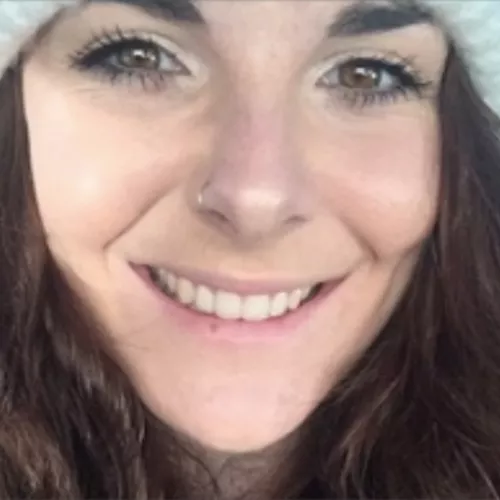What is OCD?
Obsessive-compulsive disorder (OCD) is a mental health problem. It has two main parts that are connected, obsessions and compulsions.
This page explains more about obsessions and compulsions, and how they connect in a cycle. And information about what it's like to live with OCD.
What are obsessions and compulsions?
Obsessions are unwelcome thoughts, feelings, images, urges, worries or doubts that keep coming into your mind. They may feel stuck in your mind, no matter what you do. You may worry what they mean or why they won't go away, and feel very distressed by them. Read more about obsessions.
Compulsions are repetitive things that you do to reduce the distress or uncertainty caused by obsessions. Compulsions can be things you do physically, like repeatedly checking a door is locked. Or they can be things you do in your head, like repeating a specific word to yourself. Or they may involve others, such as asking people for reassurance. Read more about compulsions.
Everyone can experience obsessive thoughts or compulsive behaviours at times. But if you have OCD, your doubts and fears about your thoughts, and the things you do to feel better, can make you very distressed. And they can have a big impact on your life.
It's not about being tidy, it's about having no control over your negative thoughts. It's about being afraid not doing things a certain way will cause harm.
Watch: What is OCD?
Watch our animation to learn more about what OCD is. And why stereotypes about OCD are wrong, and unhelpful.
The OCD cycle
Compulsions might make you feel better at first. But you may find the more you do a compulsion, the stronger the urge is to do it again. This can lead to an unhelpful cycle of thoughts, feelings and behaviours.
The diagram below shows how the cycle of OCD can feel. Everyone's experience of OCD is different, so this may not feel relevant to you. Or there may be parts that you find helpful and some that you don't.
Obsessions can start with a difficult or unwelcome thought or feeling. This is sometimes called an intrusive thought. Everyone has intrusive thoughts. And if we accept them and leave them alone, they usually go away.
But for those of us with OCD, we may start to question these thoughts or worry about what they mean. This means we're spending longer paying attention to them. And the more time we spend thinking about them, the more it might feel like they mean something. This can make us feel distressed, anxious or uncertain.
Compulsions can start when we feel like we can't cope with our distress or doubt. We may have a strong urge to get rid of the thoughts or make ourselves feel better or surer about something. We may then do, say or think something to try and feel better.
And this might work at first. We may feel relieved or comforted by what we did. And this might make us feel like the thing we did was helpful.
But the relief doesn't last. The thought or feeling pops back into our mind again. And we feel distressed again. We may feel even worse because we don't understand why the thought has come back. So we do the thing we did last time to feel better. And it works again. But then the thought comes back, perhaps even quicker this time.
As time goes on, we can spend more and more time worrying about our obsessions and doing our compulsions. And we can feel stuck in this cycle.
Our page of self-care has more tips on managing OCD.
No matter how many times I do something, I'll never feel like it's done and finished. My brain just won't let me.
What mental health problems are similar to OCD?
There are some other mental health problems that are similar to OCD because they involve repetitive thoughts, behaviours or urges.
- Perinatal OCD is when you experience OCD during pregnancy or after birth. See our pages on perinatal OCD.
- Body dysmorphic disorder (BDD) involves obsessive worrying about one or more perceived flaws in your physical appearance. And developing compulsive routines to deal with worries about the way you look. See our pages on BDD.
- Compulsive skin picking (CSP) is the repetitive picking at your skin to relieve anxiety or urges. It can be experienced as part of body dysmorphic disorder (BDD). You can read more about CSP on the OCD Action website.
- Trichotillomania is a compulsive urge to pull out your hair. You can read more about trichotillomania on the OCD Action website.
- Hoarding is when you find it hard to get rid of things, to the point where it affects your day-to-day life. See our pages on hoarding.
- Obsessive compulsive personality disorder (OCPD) is a type of personality disorder. It has some related traits to OCD, but is a different and separate condition. Our pages on personality disorders include information about OCPD.
- An eating problem is any relationship with food that you find difficult. These are sometimes diagnosed as eating disorders. If you have an eating problem, you may struggle with intrusive thoughts. Or you may find it hard to cope with uncertainty. Eating problems can also involve compulsive behaviours. See our pages on eating problems.
If you have OCD, it's common to have other mental health problems as well, such as anxiety or depression. This can sometimes make OCD difficult to diagnose or treat.
Disruption to your day-to-day life
Repeating compulsions can take up a lot of time. And you might avoid certain situations that trigger your OCD. This can mean that you're not able to go to work, see family and friends, eat out or go outside. Obsessive thoughts can make it hard to concentrate and leave you feeling exhausted.
Impact on your relationships
You may feel that you have to hide your OCD from people close to you. Or your doubts and anxieties about a relationship may make it too difficult to continue. You may find it difficult to cope with any issues within your relationships. Or you may struggle to move on from arguments or problems.
Feeling ashamed or lonely
You may feel ashamed of your obsessive thoughts or worry that they mean you're a bad person. You might want to hide this part of you from other people and find it hard to be around people or to go outside. This can make you feel isolated and lonely. Our pages on loneliness have more information and advice.
Impact on self-esteem
You may feel guilty about your thoughts or feelings. You may do or say things you regret when you're struggling with your OCD. Or OCD may stop you achieving things you want to do. This can all impact how you feel about yourself. Our pages on self-esteem have more information.
Feeling anxious
You may find that your obsessions and compulsions are making you feel anxious and stressed. For example, some people feel that they have to carry out their compulsions so often that they have little control over them. You can read more on our pages about anxiety.
I knew it was irrational...but tapping certain objects would ease the effect of the terrible intrusive thoughts. It would be time consuming but at least then I could feel like I wasn't a bad person.
This information was published in October 2023. We will revise it in 2026.
References and bibliography available on request.
If you want to reproduce this content, see our permissions and licensing page.














